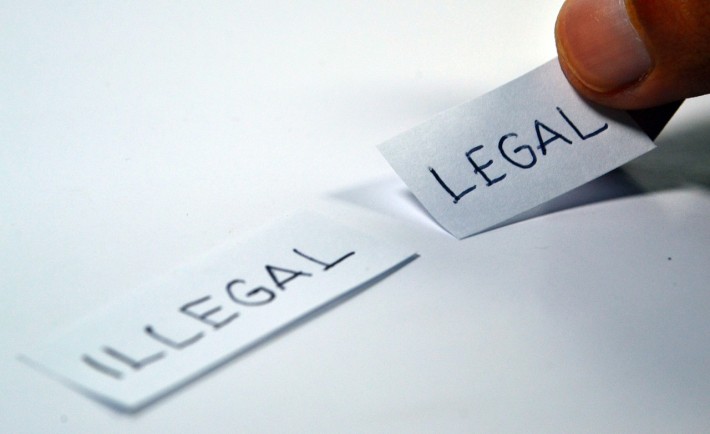
Starting a small business can be demanding enough. You have to take your knowledge of the industry and, from it, grow a knowledge of the market, of marketing, of customer service and all the different gears that keep the business running. But it’s also essential you know the law since it’s one of the aspects of business that can be most damaging when you get it wrong. Let’s take a look at some of the most major concerns you need to have with the law as a business owner.
Health & safety
Your responsibility for the safety of the working premises is one of your most important since it directly influences the well-being of other people, mostly your employees and customers. It’s also one of the most common ways to find your business in legal trouble. This isn’t because a lot of business owners aren’t concerned about things like fire risks and tripping hazards, however. More often than not, it’s because they have failed to consider something that they didn’t realize was their responsibility. Health and safety rules cover all kinds of risks, from accidents to environmental health impacts like ventilation and noise. Make sure you brush up on not only the most obvious risks, but all that fall under your legal obligations.
Labour
How you use and treat your workforce matters in a lot of different ways. One of the most important rights of an employee is their right to fair pay in fair terms. This means that a late cheque or invoice that breaks your obligatory statement of terms of employment can give someone reason to pursue legal action against your business. Holidays, bank holidays, sickness, training needs, and the right to ask for flexible working conditions are all covered by those rights as well. But it’s not just about making sure you meet your employees’ rights but ensuring the responsible use of unpaid interns and volunteers as well. They each have their own labour laws that you need to ensure you cover.
Discrimination and harassment
Where malicious behavior and discrimination against people of certain ages, genders, races, disability and so on can be argued, your business is at more risk than ever. The damage to the public image as well as the legal charges can easily cause any business to struggle. You shouldn’t only codify how you treat cases of interpersonal harassment within the workplace. You should make sure that you are not vulnerable to cases of institutional discrimination, like a gender pay gap within the business. Whether you mean to be part of that kind of discriminatory practice will not matter if it’s proven that you are. From now one, things like the pay gap will have to be reported annually, so it’s best to ensure that you are treating employees as equally as possible in all manners.
Disgruntled employees
When you’ve done nothing wrong, you should have nothing to fear. However, if you terminate an employee or take disciplinary action that they feel is biased against them, that might not necessarily matter. Disgruntled employees can just as easily be those behind a discrimination or harassment claim as those who have genuine grievances. Your best protection against disgruntled employees is to take in-depth notes of employee interactions. From the recognition of issues at work to any corrective or disciplinary measures to the content and context of meetings themselves. This evidence is crucial to show that discrimination is not a contributing factor in your actions. A disgruntled employee, when they can’t take legal action, may choose to take public action instead, attacking the reputation of the business. In those cases, you might be able to launch your own action based on claims of defamation.
Disgruntled customers
If your customers are displeased, you might also find yourself in for a legal fight there. It’s not about cases where customers aren’t happy about their product, but rather it’s about cases where their consumer rights have been violated. Every business owner needs to understand the in-depth facts on consumer rights. From their right to clear advertising free of misleading material to their right to goods that are satisfactory quality. Recently, laws have expanded to include digital goods, too, so even if your business runs solely in the digital world, you need to make sure you’re not inadvertently stepping on consumer rights.
There are a lot more legal factors to consider than just the ones mentioned above. Many of them will be industry specific, for instance. But these are some of the most common ways a business can find itself in legal hot water. Make sure you’ve got yourself covered from every angle or it could cost you the business if you’re not careful.




